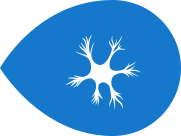10 fascinating facts about the nervous system

The nervous system can transmit signals at speeds of 100 meters (328 feet) per second, more than 8 times faster than the top speed of Usain Bolt.

The field of science that focuses on the study of the nervous system is called neuroscience. The first evidence of studies related to the nervous system dates back to ancient Egypt.

Vitamin B1 was the first of the neurotropic B vitamins to be discovered in 1897 by Dutch physician and pathologist Christiaan Eijkman, who was researching the causes of beriberi. Eijkman was awarded a Nobel Prize in 1929 for his research around vitamin B1.

In the peripheral nervous system, nerve cells can be threadlike—their width is microscopic, but their length can be measured in feet.

Sponges are the only multicellular animals without a nervous system.

The size of the nervous system ranges from a few hundred cells in the simplest worms, to around 300 billion cells in African elephants.

Ouch! Our forehead and fingertips are the most sensitive to pain because of their greater density of nerve fibers which react to a pain trigger.

Every square centimetre of your skin contains around 200 pain receptors but only 15 receptors for pressure, 6 for cold and 1 for warmth.

The colour of pure vitamin B12 substance is deep pink.

B vitamins must be replenished daily as they are only stored in the body in a very small amount.





